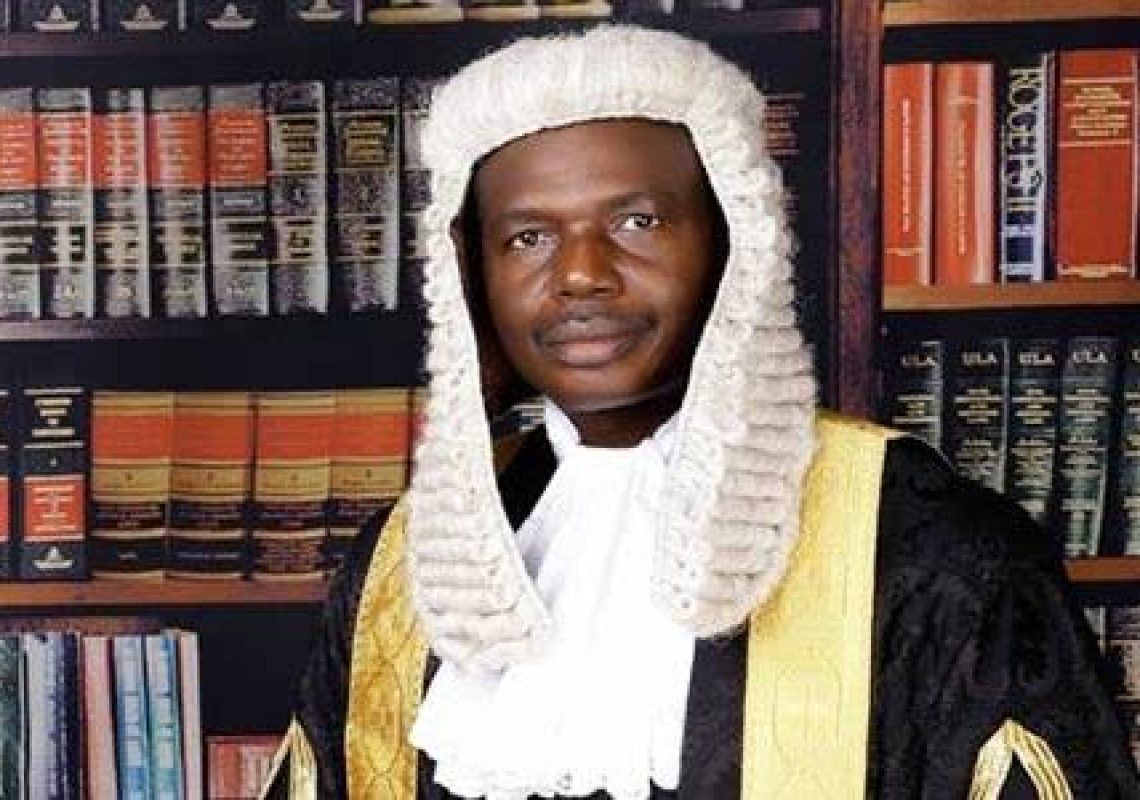By Ebu Olu-Adegboruwa SAN
INTRODUCTION
The concept of the Rule of Law as propounded by A. V Dicey in 1885 is today perceived to the bed rock of every progressive and democratic state. Incontrovertibly, societies that adopt these rules of law are termed to be free and working societies. These societies respect basic human right and allow citizens to be protected by law from government, from individuals and even from themselves. Fundamental rights are basic rights of citizen entrenched in our laws. These rights are inalienable and can only take God and the Court to wrest them from the citizens. They are provided to promote human liberty and the dignity of the human persons especially in a democratic, liberal and open society. I said open society because I still remember there is a state called North Korea where the society is brutish and life suppressive. Fundamental rights are rights guaranteed in the Nigerian Constitution and can be found entrenched in chapter IV of the 1999 Constitution(as amended)particularly in sections 33- 44. In order to speedily deal with issues of right violation and abuses considering its sensitive nature, the former Chief Justice of Nigeria, I.L Kutigi, CJN made the Fundamental Right Enforcement Procedure Rules 2009 (FREP RULES). These rules are made to ensure speedy ventilation in the prevention of human right abuses and the settlement and compensation of victims in time.It also protectsand fast-tracks litigation with respect to fundamental rights matters as against the slow-paced nature of litigation in the Nigerian judicial system. To this effect, one would be tempted to say fundamental rights proceedings have become sui generis since the advent of the Fundamental Right Enforcement Procedure Rules 2009. In this regard, the FREP rules have also abolished the need for leave of court before seeking redress against violators of fundamental human rights.
OVERVIEW
There are natural rights, human rights and fundamental rights. There are differences amongst these rights. Natural rights are rights that pertain to individuals by virtue of the fact that they are human. These rights need not be codified before they can be regarded as natural rights. Human rights are the rights that are recognized by laws. Fundamental rights are the rights that have a constitutional backing -UZOUKWU V. EZEONNU (1991) 6 NWLR (Pt200) 708 C.A. In Nigeria, such rights are contained in chapter IV of the CFRN. For the purpose of this discussion, enforcements of fundamental rights would be limited to the chapter IV, CFRN and by extension the Africa Charter on Human and People Rights (Ratification and Enforcement) Act.
The Federal Republic Nigeria Constitution 1999 has done tremendously well in making provision for the protection of human basic right. In 1957 the Henry Willink commission that was set up before independence to investigate the fear of the minority came out with the Inquiring that more fundamental right should be given to the citizens, the inquiring recognize that with these right protected every citizen will have a sense of belonging in the new Nigeria. Going forward, the present Constitution being operated has not disappointed in providing and entrenching these rights, however, if the challenges stated below are well address, the enforcement and compensation of human rights and abuses will lead to more civil society.
OBJECTIVES OF THE FUNDAMENTAL RIGHT ENFORCEMENT PROCEDURE RULES 2009
1. It is pertinent to mention once more that the Fundamental Rights Enforcement Rules 2009 were made by the former chief justice of Nigeria pursuant to section 46 [3] of the Nigerian Constitution 1999(as amended). The objectives are clearly written out in section 3(a) of the Fundamental Rights Enforcement Procedure Rules, to wit:
To advance and realize the human right and freedoms which are listed in chapter IV of the Nigerian Constitution, as well as in the African charter. The implication of this is that the rules are tailored to materialize, give flesh and substance as well as to bring to life, the rights enumerated in chapter IV of the Nigerian Constitution 1999(as amended). This is unlike the directives principles of state policies which are evinced under chapter ll of the 1999 constitution and which are not justiciable, but at best idealistic. Where breached, the fundamental right, for which redress is sought must be enumerated in chapter IV of the Nigerian 1999 Constitution or the African Charter on Human People Rights. Again, human rights must be given purposive and not given false interpretation to ensure that human and societal values are upheld to the highest regards.
2. Paragraph 3 (b)- to ensure the advancement but never the restriction of the applicants’ rights and freedoms, by the courts in respect of municipal, regional and international bills of rights. It is clear from the wording in this paragraph that one of the objectives is to advance the right of human protection and never to be restrictive with it. Although foreign laws do not govern us in Nigeria; however, Nigeria must uphold foreign laws she has domesticated and to which she is a signatory to in the quest to advance these rights.
3. For the court to be able to make consequential orders as may be just and expedient to ensure the advancement but never the restriction of the applicant’s right and freedoms. Flowing from the above paragraph, the courts are encouraged to make precedents and laws to advance protection of human right and not to kill or suppress it. This perhaps led to the establishment of the ‘’judges rules’’
4. Paragraph 3 (d)for the court to proactively pursue enhanced access to justice for all classes of litigants especially the poor, the illiterate, the uninformed, the vulnerable, the incarcerated, and the unrepresented.
5. Paragraph 3(e) – for the court to encourage and welcome public interest litigations in the human rights field and ensure that no human rights case is dismissed or struck out for want of locus standi. The apex court has severally dismissed law suits on appeal for lack of sufficient interest as the court and indeed the law does not welcome or tolerate meddlesome interlopers. However, by the purport of this paragraph, public interest litigation is encouraged and the issue of sufficient interest will no longer be a barrier to the pursuit of fundamental right enforcement in our courts.
6. Paragraph 3 (g) – to ensure that human rights suits are given priority in deserving cases. Where there is any question as to the liberty of the applicant or any person, the case shall be treated as an emergency. In deserving cases, law suits that border on the enforcement of fundamental rights are to be given priority. Cases on fundamental right must be resolved as a matter of urgency and this is especially where a person is detained.






